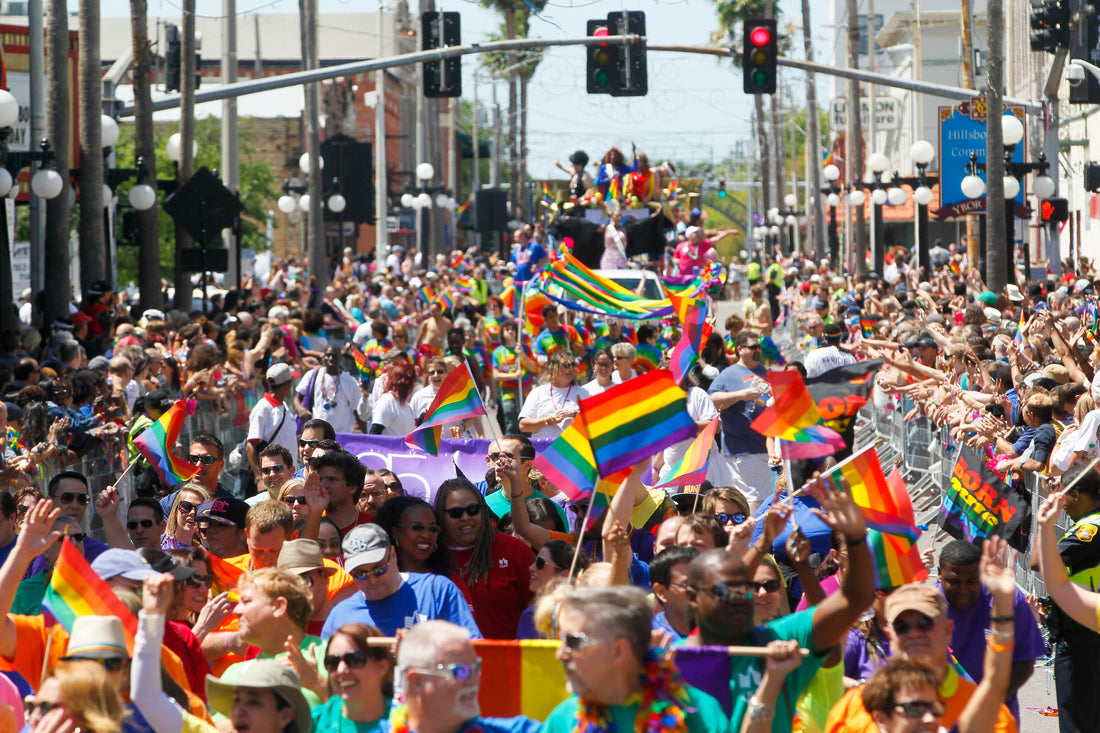
Tampa Pride Canceled, St. Pete Pride Stands Firm: A Tale of Two Cities
Share
ST. PETERSBURG, Fla. — Pride celebrations in Florida are heading down two very different paths. Tampa Pride has announced it will cancel its 2026 parade, while St. Pete Pride vows to move forward despite the same political and financial pressures. The contrast has sparked heated debate about leadership, money, and the future of LGBTQ+ visibility in the state.
Tampa Pride’s Sudden Halt
Tampa Pride’s board confirmed this month that the city will not host its 12th annual parade in 2026. The announcement blamed the “current political and economic climate,” pointing to the rollback of Diversity, Equity, and Inclusion (DEI) programs, reduced state and federal grants, and nervous corporate sponsors.
Former president Carrie West admitted the funding crisis was largely tied to DEI: “A lot of sponsors told me, DEI is the reason they can’t do it.”

But critics argue the problem wasn’t only politics. Leadership and money management are also under scrutiny. According to tax filings, West received $115,600 from Tampa Pride’s $457,985 budget last year, which amounted to nearly a quarter of all reported funds. In a year when sponsorships were drying up, that number has raised eyebrows.
Former vice president Trevor Rosine was openly frustrated: “We are six or seven months out. They couldn’t have raised enough money for a community celebration? We don’t need to spend $100,000 just to close city streets and rezone liquor licenses for one day. Pride should go back to its roots.”
St. Pete Pride Refuses to Back Down
Across the Bay, organizers in St. Petersburg are taking a different stance. Byron Green-Calisch, president of St. Pete Pride’s Board of Directors, said fundraising for the 2026 parade will kick off in October. He acknowledged the struggle ahead, noting that the organization lost $150,000 in sponsorships last year but survived thanks to community support.
“We started as a protest,” Green-Calisch said. “The first Pride was a protest, and I believe that spirit lives on.”
While some corporations are still willing to contribute, many prefer to do so quietly, wary of public backlash in Florida’s political climate. That reality makes the work of St. Pete Pride harder, but also more urgent, as the parade continues to be the largest Pride celebration in the Southeast.
Politics, Money, and a Growing Divide
The collapse of Tampa Pride isn’t happening in isolation. DEI cuts have hit cultural institutions across the state, from Creative Pinellas losing funding to WMNF Tampa holding an emergency fundraiser. Even rainbow crosswalks in Tampa and St. Pete were recently removed under FDOT orders.
For some, Tampa’s canceled parade represents a win for Governor Ron DeSantis’ anti-DEI agenda. For others, it reveals an internal failure to adapt and fundraise effectively. Either way, the decision leaves St. Petersburg carrying the Pride banner for the region, and the stakes have never been higher.
The Stakes for Florida’s LGBTQ+ Community
Pride in Florida has always been more than a celebration; it’s a statement of resilience. With Tampa Pride out of the picture, St. Pete Pride becomes the face of LGBTQ+ visibility in the Southeast. But carrying that torch comes with questions: Can they withstand financial pressure? Can they weather the political storm?
Tampa’s collapse leaves behind a cautionary tale about leadership, funding, and accountability. Meanwhile, St. Pete Pride’s determination underscores a different truth — that for many, Pride is not optional. It’s essential.
